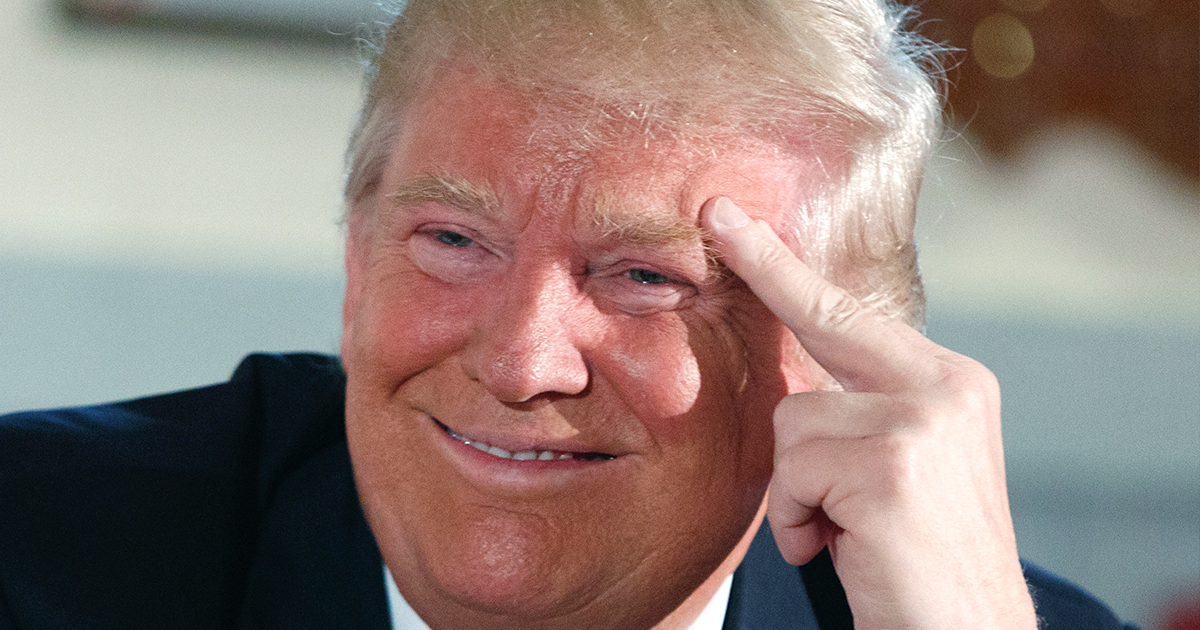Here's What This Female Writer Had to Do to Safely Criticize Donald Trump

By:
"This is the true story of my dystopian power lunch at the Trump Grill," Vanity Fair reporter Tina Nguyen tweeted on December 14, "where cake comes frozen and Bloody Marys are undrinkable."
With those words, the journalist sent off her restaurant review of Trump Grill into the twitter world. The next day, a little after 5 a.m., she was subtweeted by Trump himself:
Ngyuen's review for Vanity Fair mused Trump Grill "could be the worst restaurant in America" and, like Trump himself, "seems like a cheap version of rich." Ultimately, Ngyuen was most disappointed with the food, from its preparation to its presentation, and everything in between. The highest compliment she gave was to Trump's much-tweeted taco bowl, calling it "the most edible thing we ate."
Ngyuen was not prepared for Trump's tweet.
She told Columbia Journalism Review (CJR), "Emotionally, I was kind of shocked. I was expecting that piece to get some pick-up, but I didn’t think it was going to get the attention of the man who is going to be the most powerful person in the world in about five weeks."
However, the President-elect does have a habit of tweeting at, or about, private citizens.
In 2015, Trump tweeted about a teenage girl who attended one of his town hall-style events, calling her "arrogant" and "nasty" for asking him a question.
This put a target on the young woman, Lauren Batchelder, who found herself harassed by Trump supporters. "I didn’t really know what anyone was going to do," she told The Washington Post. "... I didn’t really know what his supporters were going to do, and that to me was the scariest part."
His supporters also went after union leader Chuck Jones, of United Steelworkers Local 1999, after Trump criticized him on Twitter.
Trump was angry because Jones called Trump out on falsifying details of a deal Trump made to save jobs at Carrier Corporation in Indianapolis . "I'm getting threats and everything else from some of his supporters," Jones told NBC News. "I'm getting them all day long — now they're kicked up a notch."
Trump supporters were able to target these private citizens because Trump singled them out on Twitter. Supporters doxxed them (meaning they found out personal details like home addresses of Batchelder and Jones and made those details public) all in the name of harassment.
But this time, Nguyen had a form of protection others didn't.
"They kept an eye out..."
Nguyen told CJR, "Rationally, I was worried I would be doxxed," as that has been the pattern of what happens to others when they're tweeted about, or even referenced, by Trump on Twitter.
 AP/Evan Vucci - apimages.com
AP/Evan Vucci - apimages.com
That a journalist should have to worry for their personal safety when writing about the President-elect — or the restaurant he lends his name to — is unusual. Journalists are protected by the First Amendment, which guarantees freedom of expression and freedom of speech, but that doesn't shield them from Internet trolls on a mission.
But Nguyen had the added protection of Vanity Fair magazine, the approval of Graydon Carter (Vanity Fair editor), and the watchful eye of Vanity Fair's PR team. "They kept an eye out for anyone who tried to release my address or my phone number or even tried to call me through the Condé [Nast] switchboard," she said. "They were on top of their game, so big credit to them."
Nguyen, as of writing, has not been doxxed or threatened. Not only has she received praise for her review, but Vanity Fair used Trump's critical tweet has been used to market Vanity Fair as "the magazine Trump doesn't want you to read" and reportedly increased their subscription by 13,000 subscribers in 24 hours.
